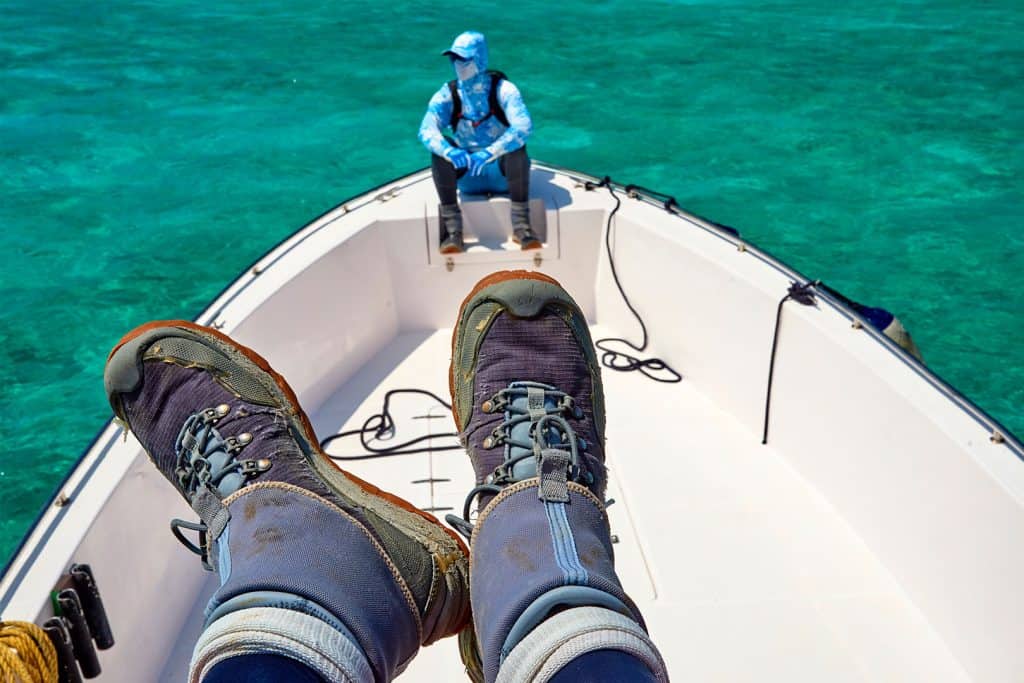Tackle
FOR THE RUGGED SURF
FLY RODS
For GTs and other big fish, we fish 12 weight rods but 11 weights would be fine, too. You fight a GT with the butt section of the rod and even more so on your reel, so whether it’s an 11 or 12 weight doesn’t matter much. Fast action saltwater models will load your line fast, with reel seats and guides that will survive the salt.
We recommend bringing a backup rod in case of breakage. If you are traveling with a friend, one backup rod between the two of you should suffice. You are not lifting heavily with the rod – the pressure is mainly applied with the heavy drag of the reel.
Still, things can go wrong in the hectic moments of hooking, fighting, or landing a strong fish – and, as we all know, shit happens…
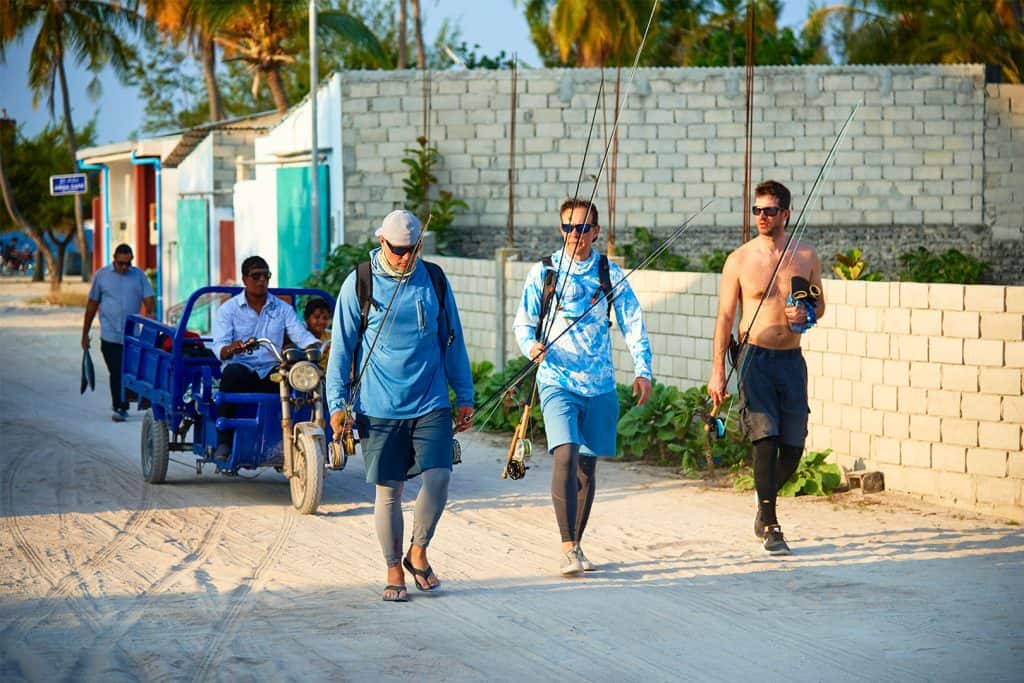

Whether you want to carry one or two rods is mainly a matter of personal taste. Occasionally, we do – most often we don’t. We don’t believe in changing rods after having spotted a fish.
Most shots at GTs occur during a window of seconds, so nine out of ten times you don’t have the time to drop the lighter rod in the water (forget all about reeling in the line and putting it away), and get the heavy rod ready for a shot.
If you are targeting GTs, we recommend that you focus on GTs. If a snapper, barracuda, shark, or a nice bluefin comes along, just show it your GT fly and see what happens.
FLY REELS
If you hook a decent GT (that’s anything of more than 4-5 KG) you will need a reel with a good drag system. For bigger fish (8-10 KG and upwards) you need a reel with a good amount of drag pressure.
The only way to stop, or at least slow down, a GT hooked in shallow water is heavy drag pressure. You will be fighting the fish on your reel, not your rod.
We recommend fly reels with sealed drag systems. This is a different scene than boat fishing. Your reels with get submerged in saltwater all the time and not all reels will tolerate this kind of abuse.
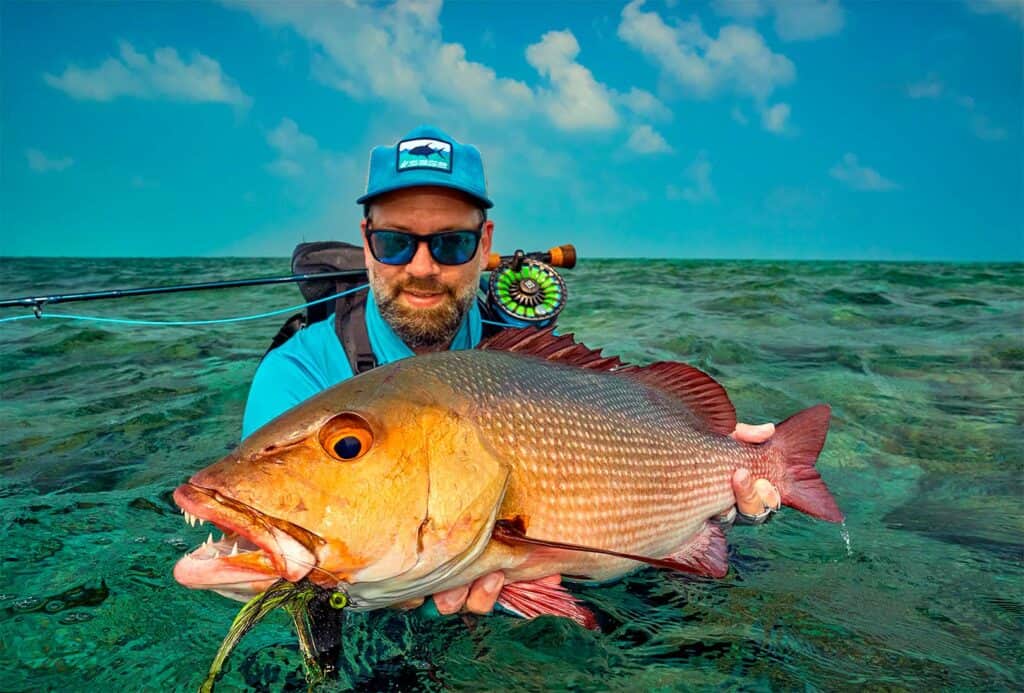
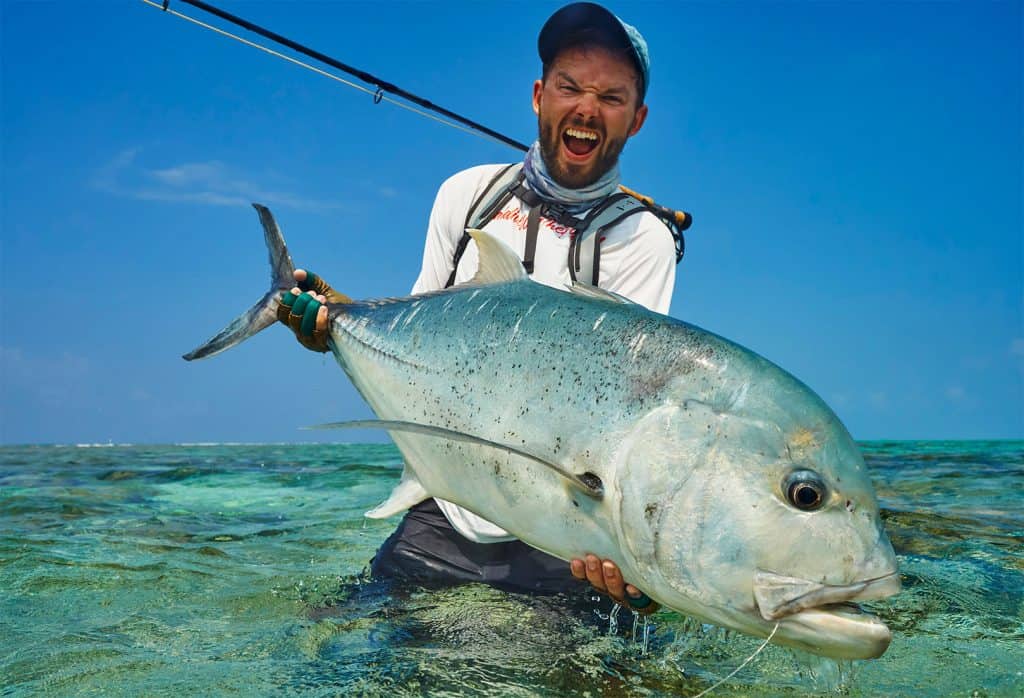
BACKING
Whether you have 200, 300, or more meters of backing on your reel is a matter of personal taste. Most likely, you won’t see too much of your backing, even on a bigger fish, because you must do everything to try and stop it.
On the other hand, if you hook one of the really big GTs that sometimes come onto the flats (we are talking fish of 130 cm/45 kilo+) then you might see a lot more than your first hundred meters of backing …
FLY LINES
For both setups, you need a floating line made for tropical saltwater.
For your big fish rig, the 11-12 weight setup, you need a floating line made for tropical saltwater with a really strong core. Some lines cast well but don’t take much abuse and break too easily if they touch rock or coral during the fight. We will send you our current recommendations.
If you are traveling alone, bring a spare fly line. If you are traveling with friends, just make sure you have a few extra lines between you, in case some of you get “reefed”.
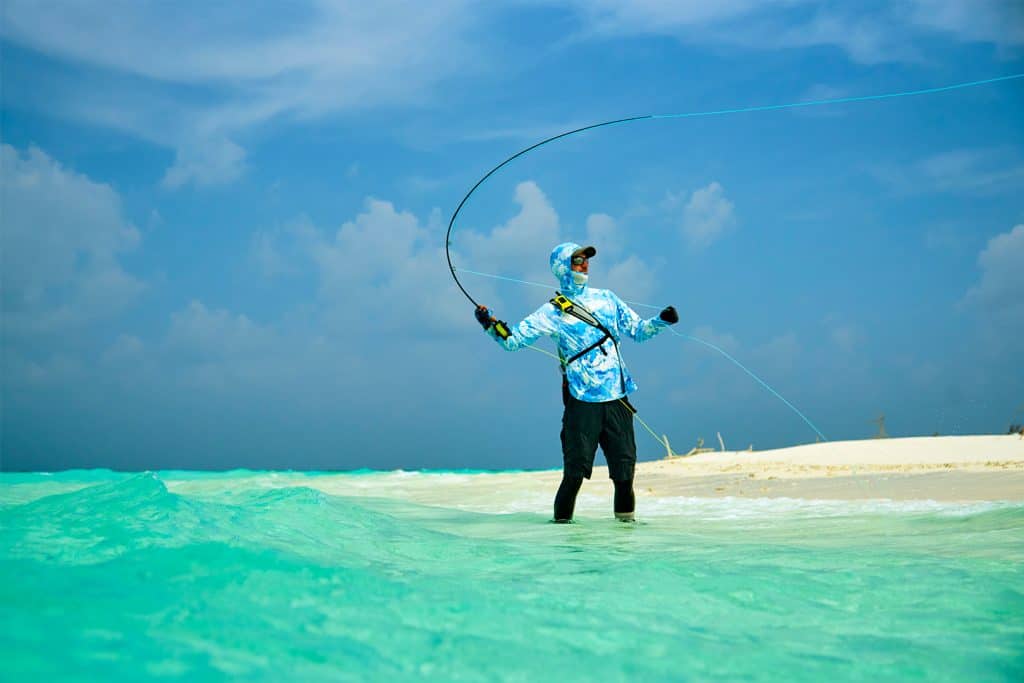
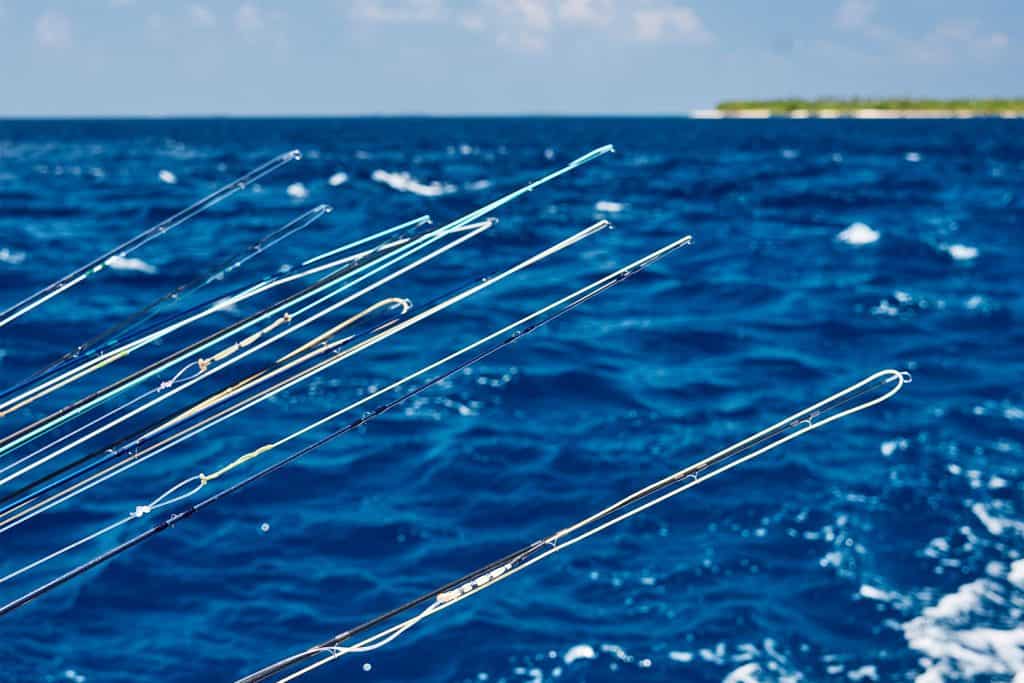
LEADER MATERIAL
We use fluorocarbon from 80-130 lbs for our heavy setup. Not because it is less visible under water but because it is more abrasion resistant. (Others prefer monofilament because it is less expensive and easier to tie knots with). Forget about bite and shock tippets, we are always fishing the heavy leader straight through.
When you have settled in at our GT-camp for the week, we will be happy to help you build your leaders and rig up. Or, we can send you instructions before the trip. Rigging correctly is vital. You don’t get that many chances at big fish so you want the odds in your favor – every time.
OTHER ITEMS
When signing up for one of our trips, we will send you a detailed list of what to bring. From advice on the best-suited clothing and the ideal combo of wading shoes, socks, and gravel guards to all the little things that can make a big difference on your trip.
We’re known for our very detailed Pre Trip Planners and if there are any unanswered questions, we’re happy to help you get everything sorted out before your dream trip.
